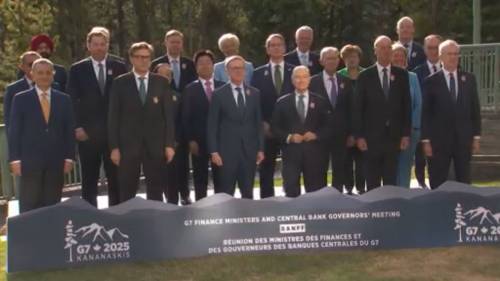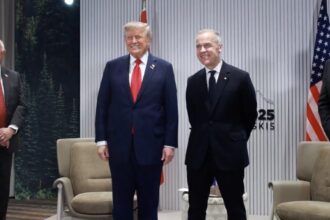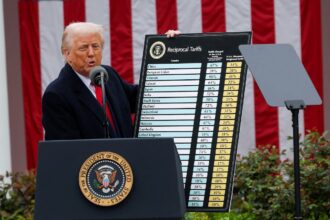In a striking display of diplomatic selectivity, G7 finance ministers concluded their high-stakes meeting in Stresa, Italy this week with a comprehensive joint statement that notably omitted any reference to mounting global tariff concerns. The agreement, while addressing numerous economic challenges facing the world’s leading democracies, strategically sidestepped what many economists consider the elephant in the room – the growing tide of protectionist trade policies.
“We’ve reached consensus on critical financial matters affecting the global economy,” stated Canadian Finance Minister Chrystia Freeland, who participated actively throughout the three-day summit. “The collaborative spirit among ministers remains strong despite navigating complex economic headwinds.”
The carefully crafted 27-page document focuses extensively on sustainable finance initiatives, digital currency regulation, and continued support for Ukraine, representing significant alignment on these issues. However, the statement’s conspicuous silence on tariffs comes amid escalating tensions following U.S. President Joe Biden’s recent aluminum and steel tariff announcements targeting China, and reciprocal measures being considered by affected nations.
According to sources close to the negotiations, the omission wasn’t accidental but rather a calculated decision to maintain solidarity on areas of agreement while avoiding potential fractures over trade policy divergences. This diplomatic maneuvering reflects the delicate balance G7 nations are attempting to strike between protecting domestic industries and preserving the rules-based international trading system they helped establish.
“The absence of tariff discussions in the final communiqué speaks volumes about the current fragility of the global consensus on trade,” explained Dr. Elena Markova, international economics professor at the University of Toronto. “G7 members are walking a tightrope between addressing legitimate concerns about unfair trade practices and avoiding a destructive cycle of retaliatory measures.”
The joint statement does reaffirm commitment to strengthening supply chain resilience, with particular emphasis on critical minerals and semiconductor production – areas where Western democracies aim to reduce dependence on China. Ministers also pledged to accelerate implementation of the G20’s Common Framework for debt treatments, addressing growing concerns about sovereign debt sustainability in developing nations following the pandemic.
Discussions on digital assets yielded substantial agreement, with ministers endorsing a coordinated approach to regulating cryptocurrencies while exploring the potential benefits and risks of central bank digital currencies. This represents a significant step toward establishing global standards in an increasingly important sector of the financial landscape.
Climate finance featured prominently as well, with renewed commitments to mobilizing private capital for green transitions and developing innovative financing mechanisms to support developing countries in meeting climate goals. Ministers specifically highlighted the need for transparent carbon pricing mechanisms and sustainable investment frameworks.
The gathering occurred against a backdrop of continuing uncertainty in Ukraine, with finance ministers unanimously reaffirming their unwavering support for the embattled nation. They announced an additional $50 billion package for immediate financial assistance and long-term reconstruction efforts, demonstrating the G7’s resolve to maintain solidarity on this front despite strains in other areas.
Japanese Finance Minister Shunichi Suzuki emphasized the importance of the meetings, stating: “Despite our different perspectives on certain issues, we remain fundamentally aligned on core values and the need for coordinated action to address global challenges.”
As global markets digest the implications of this latest G7 finance ministers’ statement, questions inevitably arise about the future of international trade cooperation. With protectionist sentiments gaining traction in many nations and supply chain restructuring accelerating, can the world’s leading economies find a sustainable path forward that balances legitimate national interests with the benefits of an open trading system?
For more coverage on international financial developments, visit CO24 World News and CO24 Business.










